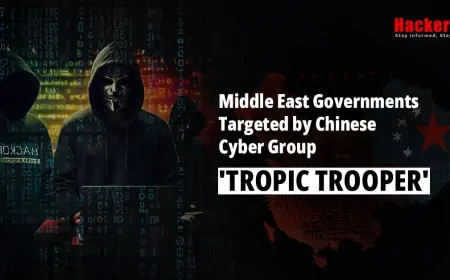Why Is the IT Act, GDPR, and Similar Laws Critical for Cybersecurity?
Imagine logging into your online banking app only to discover that your personal details have been stolen, leading to fraudulent transactions draining your savings. Or picture a major company like a hospital having its patient records hacked, exposing sensitive health information to cybercriminals. These scenarios aren't just hypothetical—they happen daily, costing billions and eroding trust in our digital world. In 2025, with cyber threats evolving faster than ever, laws like India's Information Technology Act (IT Act) of 2000 and the European Union's General Data Protection Regulation (GDPR) stand as vital guardians. These regulations aren't mere paperwork; they're essential tools that enforce security standards, punish breaches, and protect our data. In this blog, we'll explore why these laws, along with similar ones worldwide, are crucial for cybersecurity. We'll break it down simply, explaining key concepts along the way, so whether you're a business owner, a tech enthusiast, or just someone concerned about online safety, you'll see their real-world impact.As cyber attacks become more sophisticated—think AI-driven hacks or ransomware targeting critical infrastructure—these laws help societies stay one step ahead. They mandate best practices, encourage accountability, and foster global cooperation. Let's dive in and uncover how they shape a safer digital future.

Table of Contents
- Understanding the IT Act of 2000
- Exploring the GDPR
- Similar Laws Around the World
- Why These Laws Are Critical for Cybersecurity
- Impact on Businesses and Individuals
- Challenges and Future Directions
- Comparison Table of Key Laws
- Conclusion
- Frequently Asked Questions
Understanding the IT Act of 2000
The Information Technology Act, 2000, often called the IT Act, is India's primary law addressing digital activities. Enacted when the internet was just gaining traction in the country, it aimed to provide legal recognition for electronic transactions, like e-signatures and online contracts, making them as valid as paper ones. But its role in cybersecurity is even more significant.
Amended in 2008 to strengthen its provisions, the IT Act criminalizes various cyber offenses, such as hacking, identity theft, and spreading viruses. For example, Section 66 punishes unauthorized access to computer systems with imprisonment or fines. This deters potential hackers by making it clear that digital crimes have real consequences.
Why does this matter for cybersecurity? In a country like India, with over a billion internet users, the IT Act sets rules for data protection. It requires intermediaries—like social media platforms—to report cyber incidents and remove harmful content promptly. It also empowers the government to block websites posing security threats. Without such a framework, cybercriminals could operate with impunity, leading to chaos in e-commerce, banking, and governance.
The act has evolved with rules like the 2021 IT Rules, which focus on digital media ethics and grievance redressal, further bolstering online safety. For beginners, think of the IT Act as a digital constitution that ensures fair play in the online space, protecting everyone from tech-savvy threats.
- Legal framework for e-transactions and digital signatures.
- Criminalizes cybercrimes like hacking and data tampering.
- Requires reporting of security incidents to authorities.
- Empowers blocking of malicious content or sites.
In essence, the IT Act lays the groundwork for a secure digital India, adapting to new challenges like deepfakes and AI misuse.
Exploring the GDPR
Shifting to Europe, the General Data Protection Regulation (GDPR) came into effect in 2018 and has become a global benchmark for data privacy. Unlike the IT Act, which covers a broad range of IT issues, GDPR focuses specifically on personal data—anything that can identify an individual, like names, emails, or even IP addresses.
GDPR's core principles include lawfulness, fairness, and transparency in data processing. Organizations must get explicit consent before collecting data and explain how it'll be used. But its cybersecurity angle is in Article 32, which mandates "appropriate technical and organizational measures" to secure data, such as encryption and regular vulnerability testing.
One standout feature is the 72-hour breach notification rule: If data is compromised, companies must inform authorities and affected individuals quickly. This rapid response helps contain damage and allows for swift investigations. Fines can reach up to 4% of global annual turnover, making compliance a boardroom priority.
For cybersecurity, GDPR forces companies to build security into their systems from the ground up—a concept called "privacy by design." It also gives individuals rights like data access, correction, and deletion (the "right to be forgotten"), empowering users against misuse.
- Requires consent and transparency in data handling.
- Mandates security measures like encryption.
- Enforces quick breach notifications.
- Imposes heavy fines for non-compliance.
GDPR's extraterritorial reach means it applies to any company dealing with EU citizens' data, influencing global standards and enhancing overall cybersecurity.
Similar Laws Around the World
The success of GDPR and the IT Act has inspired similar legislation globally, creating a patchwork of data protection rules. For instance, California's Consumer Privacy Act (CCPA) gives residents rights similar to GDPR, including opting out of data sales. Brazil's Lei Geral de Proteção de Dados (LGPD) mirrors GDPR with principles of purpose limitation and data minimization.
In Asia, Singapore's Personal Data Protection Act (PDPA) requires organizations to protect personal data and notify breaches. Canada's Personal Information Protection and Electronic Documents Act (PIPEDA) emphasizes consent and accountability.
Africa is catching up too, with laws like Nigeria's Data Protection Act, which establishes a commission to enforce rules. Even in the Middle East, countries like the UAE have introduced data protection regulations aligned with international standards.
These laws share common goals: safeguarding personal information, mandating security protocols, and penalizing violations. They promote a unified approach to cybersecurity, especially as data flows across borders.
- CCPA in the US for consumer privacy rights.
- LGPD in Brazil for data processing rules.
- PDPA in Singapore for breach notifications.
- PIPEDA in Canada for accountability.
For more on how different countries handle cybersecurity, check out this insightful piece from Webasha.
Why These Laws Are Critical for Cybersecurity
In 2025, cyber threats are more advanced, with AI enabling sophisticated attacks like automated phishing or deepfake fraud. Data protection laws like the IT Act and GDPR are critical because they establish minimum security standards that organizations must follow.
First, they deter cybercriminals through penalties. GDPR's massive fines—up to €20 million or 4% of turnover make companies invest in robust defenses. Similarly, the IT Act's imprisonment terms discourage hacking.
Second, they mandate proactive measures. GDPR requires risk assessments and data protection officers, while the IT Act insists on reasonable security practices. This shifts focus from reaction to prevention.
Third, breach notification rules enable quick responses, limiting damage. For example, after a ransomware attack, timely alerts allow victims to change passwords or monitor accounts.
Fourth, they foster trust. When people know their data is protected by law, they're more likely to engage online, boosting economies.
Finally, in a globalized world, these laws enable cross-border cooperation, harmonizing efforts against international threats.
- Deterrence via fines and punishments.
- Proactive security requirements.
- Rapid incident response mechanisms.
- Building public trust in digital systems.
- Facilitating global collaboration.
Without them, cybersecurity would be a wild west, with rampant breaches and little accountability.
Impact on Businesses and Individuals
For businesses, complying with these laws means integrating cybersecurity into operations. Companies must conduct audits, train staff, and implement tools like firewalls and encryption. While this incurs costs, it prevents far larger losses from breaches the average cost in 2025 is over $4 million per incident.
Take the Equifax breach of 2017, where poor security exposed 147 million people's data. Under GDPR-like rules, such negligence would trigger huge fines and lawsuits. In India, the IT Act helped prosecute cases like the 2022 AIIMS hospital hack, holding perpetrators accountable.
For individuals, these laws provide rights and remedies. GDPR's right to compensation for data misuse empowers victims, while the IT Act allows filing complaints for cybercrimes.
Overall, they create a safer ecosystem, reducing risks like identity theft or phishing scams.
- Businesses: Compliance drives better security investments.
- Individuals: Rights to access and delete data.
- Real-world examples: Lessons from major breaches.
Challenges and Future Directions
Despite their strengths, challenges persist. Enforcement can be uneven, especially in developing countries with limited resources. Emerging tech like AI poses new risks GDPR is adapting with the EU AI Act.
Privacy vs. security debates arise, as laws must balance protection without stifling innovation. Future directions include more harmonized global laws and focus on quantum computing threats.
- Enforcement gaps in some regions.
- Adapting to AI and new technologies.
- Balancing privacy and innovation.
Comparison Table of Key Laws
| Law | Region | Key Features | Cybersecurity Role |
|---|---|---|---|
| IT Act 2000 | India | E-transactions, cybercrimes | Criminalizes hacking, requires reporting |
| GDPR | EU | Data consent, rights | Mandates encryption, breach alerts |
| CCPA | California, USA | Opt-out of data sales | Enhances consumer data security |
| LGPD | Brazil | Data minimization | Requires security measures |
| PDPA | Singapore | Breach notifications | Protects against data misuse |
Conclusion
To sum up, laws like the IT Act, GDPR, and their global counterparts are indispensable for cybersecurity in 2025. They define standards, enforce accountability, and adapt to emerging threats, protecting businesses and individuals alike. By deterring attacks, mandating secure practices, and promoting trust, these regulations build a resilient digital landscape. As cyber risks grow, staying compliant isn't just legal it's smart. For deeper insights into cybersecurity strategies, visit Webasha. Remember, a secure online world starts with strong laws and informed actions.
Frequently Asked Questions
What is the IT Act of 2000?
It's India's key law for regulating electronic transactions and combating cybercrimes, providing legal backing for digital activities.
What does GDPR stand for?
General Data Protection Regulation, the EU's comprehensive law for protecting personal data and privacy.
Why is the IT Act important for cybersecurity?
It criminalizes hacking and data theft, requires incident reporting, and sets security standards for digital operations.
How does GDPR enhance cybersecurity?
By mandating encryption, risk assessments, and quick breach notifications, it ensures data is handled securely.
What are similar laws to GDPR?
Laws like CCPA in California, LGPD in Brazil, and PDPA in Singapore offer comparable data protection frameworks.
Do these laws apply globally?
GDPR has extraterritorial effects for EU data; others are regional but influence international practices.
What happens if a company violates GDPR?
Fines up to 4% of global turnover, plus potential lawsuits and reputational damage.
How does the IT Act handle data breaches?
It requires intermediaries to report incidents and empowers authorities to investigate and penalize.
Why are breach notifications critical?
They allow quick responses to minimize harm and help victims protect themselves.
What is privacy by design?
A GDPR principle where security is built into systems from the start, not added later.
How do these laws affect businesses?
They require investments in security but prevent costly breaches and build customer trust.
Are there challenges in enforcing these laws?
Yes, like keeping up with tech advances and ensuring consistent global enforcement.
What role do these laws play in AI cybersecurity?
They regulate AI data use, with updates like the EU AI Act addressing new risks.
Can individuals benefit from these laws?
Absolutely, through rights like data access, deletion, and compensation for breaches.
What is a data protection officer?
A role mandated by GDPR for overseeing compliance and data security in organizations.
How has GDPR influenced other countries?
It inspired laws worldwide, setting a high standard for data privacy and security.
What penalties does the IT Act impose?
Imprisonment up to three years and fines for offenses like unauthorized access.
Why focus on consent in these laws?
Consent ensures data is collected ethically, reducing misuse and enhancing security.
What future changes might we see?
More emphasis on AI, quantum threats, and international harmonization of rules.
How can beginners stay compliant?
Understand basic rights, use secure practices, and seek expert advice for businesses.
What's Your Reaction?










































































